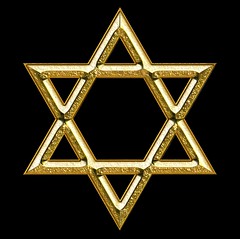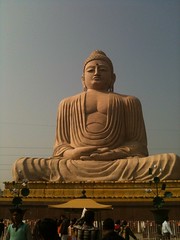| 10722892215 | Culture | One of the 5 AP World themes that deals with: Religions, belief systems, philosophies and ideologies, science/maths/technology, and art and architecture | 0 | |
| 10722892216 | Economic | One of the 5 AP World themes that deals with: agriculture and pastoral production, trade and commerce, labor systems, industrialization, capitalism, and socialism | 1 | |
| 10722892217 | Social | One of the 5 AP World themes that deals with: Gender roles and relations, family and kinship, racial and ethnic constructions, social and economic classes | 2 | |
| 10722892218 | HEI (Interactions between humans and the environment) | One of the 5 AP World themes that deals with: Demography and disease, migration, patterns of settlement, and technology | 3 | |
| 10722892219 | State-building | One of the 5 AP World themes that deals with: Expansion and conflict, political structures and forms of governing, empires, nations and nationalism, revolts/revolutions, regional and global structures, and orginizations | 4 | |
| 10722892220 | Mesopotamia | Region between Tigris and Euphrates rivers that dev. first urban societies started as city states. Included Sumer, Akkadian, Babylonian, and Assyrian empires; Men claimed power for fertility, respectable women must be veiled |  | 5 |
| 10722892221 | Paleolithic People | Small tribes/bands of people; mainly egalitarian and often exploition of resources and extinction of large animals | 6 | |
| 10722892222 | Sumerians | City states were always competing and that led to conquests by Sumerians | 7 | |
| 10722892223 | Babylonians | Code of Hammurabi; Enforced laws; center for math and learning; unpredictable flooding led to belief of vengeful and angry Gods | 8 | |
| 10722892224 | Egypt | Women were equals, have greater life opportunities, arranged marriage but some freedom after marriage; |  | 9 |
| 10722892225 | Animism | Belief in natural power that organizes | 10 | |
| 10722892226 | Shamanism | Belief that a certain person has the ability to contact the higher being | 11 | |
| 10722892227 | Judaism | Monotheistic; invalidated other Gods which led to constant persecution and exiled; Hebrews were the chosen people of God; influenced Christianity and Islam; no widespread hierarchal |  | 12 |
| 10722892228 | Zoroastrianism | Emphasis on free will of human kind and everyone needs to choose between good and evil; afterlife; never spread outside of Persia; influenced Judaism and Christianity |  | 13 |
| 10722892229 | Christianity | Only only monotheistic belief besides from Islam and Judaism; Jesus is savior, son of one and only God |  | 14 |
| 10722892230 | Hinduism | Created during time of war; Created because Aryans invaded India and was a response the need for unity and social structure; reincarnation determined by karma that you could gain by being dutiful in current caste; highest level of living life is varna |  | 15 |
| 10722892231 | Buddhism | Created during time of peace; embrace suffering and deny wants and beliefs, no emphasis on higher being; ultimate goal is to find nirvana by ending suffering in current reincarnation life; extremely egalitarian, more accessible version of Hindusism |  | 16 |
| 10722892232 | Daoism | Created during time of peace; popular with peasants; opposition to Confucianism; polytheistic; focused on balance, nature, and spirituality; advocating a simple honest life and noninterference with the course of natural events |  | 17 |
| 10722892233 | Confucianism | Created at time of chaos; stressed humanity towards others; respect for parents and ancestors (filial piety); belief that only educated people should govern; respect order of relationships and hold the correct people accountable; mandate of heaven; "Analects" written after Kung Fu-Tzu's death by followers; Confucian thinkers in power often thought that Daoism and Confucianism should be done together; moral example of superiors | 18 | |
| 10722892234 | Qin (Shihuangdi) | Legalism lead to really harsh rule. Accepted bureaucracy, reduced aristocracy, ironized army, surplus food=increased food; unified china, erected Great Wall of China; put in system of measurement + Chinese riding; fell due to extreme harshness; teracotta soldiers which showed that there was a lot of power, focused greatly on food, and the excess of resources |  | 19 |
| 10722892235 | Han (Wu Di) | Han dynasty (206 BCE - 220 CE) learned from Qin mistakes, maintaining the centralized bureaucracy but using on Confucianism as a guiding philosophy | 20 | |
| 10722892236 | Mauryan | Conquered and ruled India using a centralized bureaucratic government; emperor Ashoka collected taxes through this system; Buddhism was prevalent and Ashoka converted his rulers to Buddhism; First centralized empire in India; Ashoka was tolerant of other religions; declined after Ashoka's death |  | 21 |
| 10722892237 | Gupta | Decentralized, controlled through military source and a sophisticated culture; known as "Golden Age of India", a unification of India; allowed collaborations between local and regional rulers rather than one main rulers; inventions and discoveries in math and science during this time |  | 22 |
| 10722892238 | India | Caste system with strict gender rules; Hinduism was prevalent religion with Buddhism more favorable for lower classes, slaves, and women |  | 23 |
| 10722892239 | Greece | Oligarchy, tiered citizenship, slaves were encourage to be freed; Slaves played a major role in Greece economy and civilization; emphasis on citizen responsibility; Assembly in Athens was open to everybody, but majority of citizens couldn't attend; men that could afford to go to assembly were rich ones and that resulted in their partaking in government proceedings; Women played a small role in the patriarchal city states of everywhere but Sparta |  | 24 |
| 10722892240 | Persia | Persia was the biggest empire in the world; elaborate cult of kingship, king was perceived as a god; gov. spies from capital were prominent and watched over the low level provincial authority; Persian imperial bureaucracy and court life was a model for most civilizations later in the world; royal road was a path for trade and commerce; often fought with Greek city states |  | 25 |
| 10722892241 | Hellenistic Era | Age of Cultural Diffusion; Alexander the Great's empire; conquered Persia; Renaissance Age, time of learning and science and maths; Made up of Persians and Greek | 26 | |
| 10722892242 | Alexander the Great | Greek king; Caused for Persians to be concquered by Greek in a "sign of god"; was never happy with a lot of power, became kingly-god from conquests; got conquered by northern border Macedonia | 27 | |
| 10722892243 | Maya | Recorded everything, complex math and religious tradition. Compared to Greek City-States | 28 | |
| 10722892244 | Teotihuacan | Not a lot is known, known for its knowledge. Traded with the Maya, another city state of MesoAmerica | 29 | |
| 10722892245 | Rome | Republic: Smaller, easier to control, city-states; had wealthy people and control/abuse over lower class; post-monarchy with senate and public assemblies run by upper-class, republic ended because of growth of area; values are rule of law Empire: Larger, unified state (Constantine); nicer to lower class; empire to encompass | 30 | |
| 10722892247 | Qin Shi Huangdi | Emperor of China during Qin dynasty; Ordered building of Great Wall of China; Ruled with Legalism which meant strict laws and punishment |  | 31 |
| 10722892248 | Order of religions | Polytheism, Hinduism, Judaism, Confucianism, Buddhism, Daoism, Christianity, Islam | 32 | |
| 10722892249 | Oligarchy | A government ruled by a few powerful people | 33 | |
| 10722892250 | Ziggurats | Type of temple common to Sumerians, Babylonians, and Assyrians |  | 34 |
| 10722892251 | Bureaucracy | Civil Service the non elected part of government | 35 | |
| 10722892252 | Syncretism | Combining beliefs of different religions | 36 | |
| 10722892253 | Urbanization | Movement of people from rural areas to cities | 37 |
AP World History Unit 1 & 2 Flashcards
Primary tabs
Need Help?
We hope your visit has been a productive one. If you're having any problems, or would like to give some feedback, we'd love to hear from you.
For general help, questions, and suggestions, try our dedicated support forums.
If you need to contact the Course-Notes.Org web experience team, please use our contact form.
Need Notes?
While we strive to provide the most comprehensive notes for as many high school textbooks as possible, there are certainly going to be some that we miss. Drop us a note and let us know which textbooks you need. Be sure to include which edition of the textbook you are using! If we see enough demand, we'll do whatever we can to get those notes up on the site for you!

